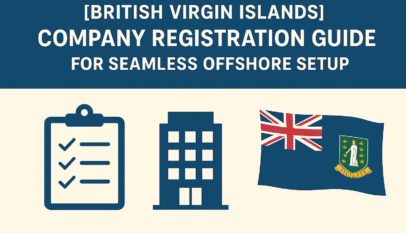
Finding the right financial advisor is crucial for high net worth individuals seeking to manage and grow their wealth effectively. The best financial advisors for high net worth individuals not only provide tailored investment strategies but also offer comprehensive wealth management services that address unique financial goals. With a wealth of options available, it is essential to identify advisors who understand the complexities of managing significant assets.
Many high net worth individuals prioritize personalized service and bespoke financial planning. Advisors with experience in this niche often have a deeper understanding of tax implications, estate planning, and investment opportunities that can maximize returns while minimizing risks. The right advisor can provide invaluable guidance that aligns with the individual’s financial aspirations.
Investing in the future requires knowledge and strategy. Choosing an advisor with a proven track record in working with affluent clients can make a substantial difference in achieving lasting financial success. The following insights will help in identifying the top financial advisors skilled in navigating the complexities of wealth management for high net worth individuals.
Criteria for Selecting a Financial Advisor
Selecting a financial advisor for high-net-worth individuals involves several key factors. Understanding individual needs, assessing the advisor’s experience, evaluating fee structures, and confirming fiduciary duty are essential in making an informed decision.
Understanding High Net Worth Needs
High-net-worth individuals have unique financial situations often involving complex investments, tax strategies, and estate planning. A financial advisor should demonstrate a clear understanding of these specific needs.
It is crucial to identify advisors experienced in working with high-net-worth clientele. They should be knowledgeable about investments that align with the client’s risk tolerance and financial goals. Services like wealth management, philanthropic strategies, and asset protection are examples of areas that may require specialized knowledge.
Clients should also assess how well the advisor communicates complex concepts. Clarity in discussing investment strategies or tax implications can significantly influence a client’s trust and confidence.
Evaluating Experience and Track Record
Experience is vital when selecting a financial advisor. Advisors with a proven track record of successfully managing assets for individuals of similar financial stature provide reassurance.
Reviewing the advisor’s credentials, such as certifications and designations, can also be informative. Designations like Certified Financial Planner (CFP) or Chartered Financial Analyst (CFA) indicate a commitment to high standards.
Looking into the advisor’s client testimonials and case studies can shed light on their effectiveness. A consistent history of achieving client goals is a strong indication of their capability.
Consideration of how long the advisor has been in the field can also be valuable. Those with extensive experience may be better equipped to navigate market fluctuations and handle unique financial challenges.
Assessing Fee Structures
Understanding the advisor’s fee structure is crucial for high-net-worth individuals. Fees can vary greatly, including hourly rates, flat fees, or commissions based on assets under management.
Clients should inquire about all possible fees upfront to avoid surprises later. A transparent fee schedule can indicate the advisor’s integrity and willingness to be forthright.
It’s also important to compare fee structures among different advisors. This comparison can help clients evaluate which advisor offers the best value for the services provided. Low fees don’t always equate to better outcomes, so careful analysis is necessary.
Checking for Fiduciary Duty
Fiduciary duty is a key factor in selecting a financial advisor. Advisors who are fiduciaries are legally required to act in the client’s best interest, which provides greater peace of mind.
Clients should ask potential advisors if they adhere to fiduciary standards. This can help differentiate between advisors who may prioritize their own financial gain over the client’s welfare.
Understanding how the advisor is compensated can provide insight into their motivations. Advisors who earn commissions may have conflicts of interest that fiduciaries avoid. Choosing a fiduciary ensures alignment of interests between the advisor and the client, fostering a more trustworthy relationship.
Top Financial Advisors for High Net Worth Individuals
High net worth individuals require tailored financial strategies to manage their wealth effectively. This section explores various types of financial advisors suited for affluent clients, including boutique firms, large-scale services, and specialized planners.
Boutique Wealth Management Firms
Boutique wealth management firms focus on personalized service and customized financial solutions. They often cater to a select group of clients, enabling them to offer a more tailored approach.
These firms typically provide services such as investment management, estate planning, and tax optimization. Advisors at boutique firms often have extensive experience and can create strategies aligned with a client’s unique needs and values.
Notable boutique firms include Brown Advisory and Wealthspire Advisors. These companies emphasize building long-term relationships and delivering dedicated service.
Large-Scale Advisory Services
Large-scale advisory services offer a broader range of resources and expertise. They typically have offices across multiple locations and provide a wide array of financial services to high net worth clients.
These firms harness advanced technology for data analysis and portfolio management. They provide comprehensive solutions, including private banking, asset management, and financial planning. Firms like Morgan Stanley Wealth Management and UBS Wealth Management exemplify this category.
Clients benefit from a vast network of specialists, allowing for multifaceted support in achieving their financial goals.
Specialized Financial Planners
Specialized financial planners focus on specific areas such as tax strategies, retirement planning, or investment management. They may possess advanced certifications, making them experts in their respective fields.
These planners provide individualized attention and tailored strategies for clients’ unique circumstances. For instance, a tax expert can optimize wealth through effective strategies that minimize tax liabilities.
Prominent specialized planners include Creative Financial Concepts and Aspiriant. Their deep knowledge in niche markets allows high net worth individuals to navigate complex financial landscapes efficiently.
British Virgin Islands Company Registration Guide for Seamless Offshore Setup
Registering a company in the British Virgin Islands (BVI) is a straightforward process tha…









